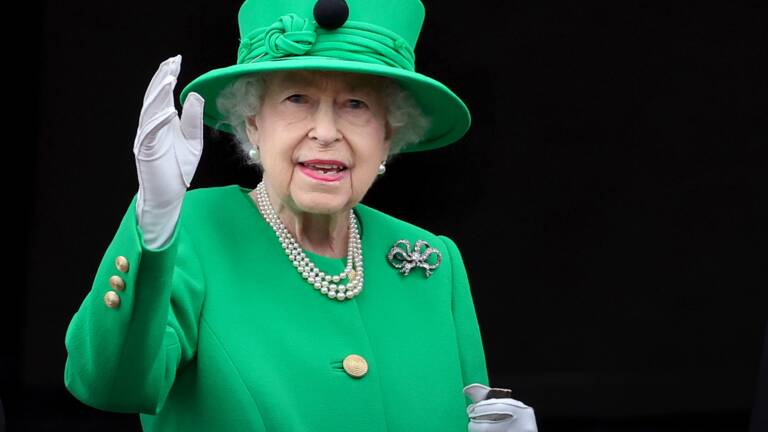
Is Ensuring Election Integrity Anti-Democratic? asks John R. Lott, Jr, Founder and President of the Crime Prevention Research Center, in a speech at Hillsdale College:
… in 2005, the Carter-Baker Commission on Federal
Election Reform issued a report that proposed a uniform system of
requiring a photo ID in order to vote in U.S. elections. The report also
pointed out that widespread absentee voting makes vote fraud more
likely. Voter files contain ineligible, duplicate, fictional, and
deceased voters, a fact easily exploited using absentee ballots to
commit fraud. Citizens who vote absentee are more susceptible to
pressure and intimidation. And vote-buying schemes are far easier when
citizens vote by mail.
… It was a truly bipartisan commission that made what seemed at the time to be common sense proposals.
How things have changed. Some of the
Commission’s members, Jimmy Carter among them, came out [in 2020] to
disavow the Commission’s work. And despite surveys showing that
Americans overwhelmingly support measures to ensure election integrity—a
recent Rasmussen survey found that 80 percent of Americans support a
voter ID requirement—Democratic leaders across the board oppose such
measures in the strongest terms.
… Sadly but
predicably, [President Biden suggested] that requiring voter IDs would mean
returning people to slavery.
But the fact is that the U.S. is an outlier among the world’s democracies in not requiring voter ID. Of the 47 countries in Europe today, 46 of them
currently require [the
common-sense policy of] government-issued photo IDs to vote.
When it comes to absentee voting, we Americans, accustomed
as we are to very loose rules, are often shocked to learn that 35 of
the 47 European countries—including France, Italy, the Netherlands,
Norway, and Sweden—don’t allow absentee voting for citizens living in
country. Another ten European countries—including England, Ireland,
Denmark, Portugal, and Spain—allow absentee voting, but require voters
to show up in person and present a photo ID to pick up their ballots. It
isn’t like in the U.S., where a person can say he’s going to be out of
town and have a ballot mailed to him.
England used to have absentee voting
rules similar to ours in the U.S. But in 2004, in the city of
Birmingham, officials uncovered a massive vote fraud scheme in the city
council races. The six winning Labor candidates had fraudulently
acquired about 40,000 absentee votes, mainly from Muslim areas of the
city. As a result, England ended the practice of mailing out absentee
ballots and required voters to pick up their ballots in person with a
photo ID.
Up until 1975, France also had loose
absentee voting rules. But when massive vote fraud was discovered on the
island of Corsica—where hundreds of thousands of dead people were found
to be voting and even larger-scale vote-buying operations were
occurring—France banned absentee voting altogether.
On the topic of buying votes, I should
point out that we in the U.S. did not always have secret ballots. It
wasn’t until 1880 that the first state adopted the secret ballot, and
the last state to adopt it was South Carolina in 1950. Perhaps
surprisingly, when secret ballots were adopted, the percentage of people
voting fell by about twelve percent. Why was that? Prior to the
adoption of the secret ballot, lots of people would get paid for voting.
In those days, people voted by placing pieces of colored paper in the
ballot box, with different colors representing different parties. Party
officials would be present to observe what color paper each voter put
into the box, and depending on the color, the voter would often get
paid. Secret ballots put an end to this practice.
France learned in 1975 that the use of
absentee ballots led to the same practice—it allowed third parties to
know how people voted and pay them for voting a certain way. This same
problem is now proliferating in the U.S. in the form of “ballot
harvesting,” the increasingly common practice where party functionaries
distribute and collect ballots.
Defenders of our current voting rules point out that in
lieu of absentee voting, some European countries allow “proxy voting,”
whereby one person can designate another to vote for him. And while it
is true that eight of the 47 European countries allow proxy
voting—meaning that 39 do not—there are strict requirements.
… How about our neighbors, Canada and
Mexico? Canada requires a photo ID to vote. If a voter shows up at the
polls without an ID, he is allowed to vote only if he declares who he is
in writing and if there is someone working at the polling station who
can personally verify his identity.
… Those who oppose election integrity reform here in the
U.S. often condemn it as a means of “voter suppression.” But in Mexico,
the percent of people voting rose from 59 percent before the reforms to
68 percent after. It turned out that Mexicans were more, not less,
likely to vote when they had confidence that their votes mattered.
H.R. 1, the radical bill Democratic Party
leaders have been pushing to adopt [since 2021], would prohibit states
from requiring voter ID and require states to allow permanent mail-in
voting. And mail-in voting, I hardly need to point out, is even worse,
in terms of vote fraud, than absentee voting. With absentee voting, a
person at least has to request a ballot. With mail-in voting—as we saw
in too many places in the 2020 election—ballots are simply mailed out to
everyone. With loose absentee voting rules, a country is making itself
vulnerable to vote fraud. With mail-in voting, a country is almost
begging for vote fraud.
If the rhetoric we hear from the Left
today is correct—if voter ID requirements and restrictions on absentee
(or even mail-in) voting are un-democratic—then so are the countries of
Europe and the rest of the developed world. But this is utter nonsense.
Those opposing common sense measures to
ensure integrity in U.S. elections—measures such as those recommended by
the bipartisan Carter-Baker Commission in 2005—are not motivated by a
concern for democracy, but by partisan interests.
I made this very point in a post 10 years ago (during the election of 2012), which I updated in 2021. If America is "racist" for its (common sense) election laws, then so is just about every country in Europe and, indeed, on the planet:
• Joe Biden, Why Are You Calling Denmark a White Supremacist Country? And You, Barack Obama: Why Are You Calling Africa a Racist Continent?
 Also from Hillsdale College's free speech digest, Imprimis: “Zuckerbucks” and the 2020 Election by Mollie Hemingway, author of Rigged (How the Media, Big Tech, and the Democrats Seized Our Elections)
Also from Hillsdale College's free speech digest, Imprimis: “Zuckerbucks” and the 2020 Election by Mollie Hemingway, author of Rigged (How the Media, Big Tech, and the Democrats Seized Our Elections)
Months after the election, Time magazine
published a triumphant story of how the election was won by “a
well-funded cabal of powerful people, ranging across industries and
ideologies, working together behind the scenes to influence perceptions,
change rules and laws, steer media coverage and control the flow of
information.” Written by
Molly Ball, a journalist with close ties to Democratic leaders, it told a
cheerful story of a “conspiracy unfolding behind the scenes,” the
“result of an informal alliance between left-wing activists and business
titans.”
… The plan by Democratic strategists to
bring activist groups into election offices worked in part because no
legislature had ever imagined that a nonprofit could take over so many
election offices so easily. “If it can happen to Green Bay, Wisconsin,
sweet little old Green Bay, Wisconsin, these people can coordinate any
place,” said Janel Brandtjen, a state representative in Wisconsin.
She was right. What happened in Green Bay
happened in Democrat-run cities and counties across the country. Four
hundred million Zuckerbucks were distributed with strings attached.
Officials were required to work with “partner organizations” to
massively expand mail-in voting and staff their election operations with
partisan activists. The plan was genius. And because no one ever
imagined that the election system could be privatized in this way, there
were no laws to prevent it.
Read the whole thing™
— many eye-opening details — and
don't forget to
vote in November…
More related:
• Democrats don't support voter fraud; they just worry about disenfranchising the deceased
• Voter ID: Apparently not allowing minorities to cheat is a form of racial oppression
• Let’s dispense with the myth that liberals are really against voter fraud; Voter fraud is actually an essential part of their election strategy
• If the Democrats learned anything from their 2016 debacle it’s that they didn’t cheat nearly enough
• Isn't America Being Governed by a Mafia Family Dynasty, setting things up so that there will always be Democrats in power?
• Inside of a month, Democrats have redefined riots and election challenges from the highest form of patriotism to an attack on democracy — And by “democracy”, they mean the Democrat Party
• Voter Fraud: A Note to Leftists Who Claim that "Not a shred of hard evidence has been produced"
• Dennis Prager: The Numerous (and Sweeping) Anomalies Regarding the 2020 Election That Cannot Be Ignored




